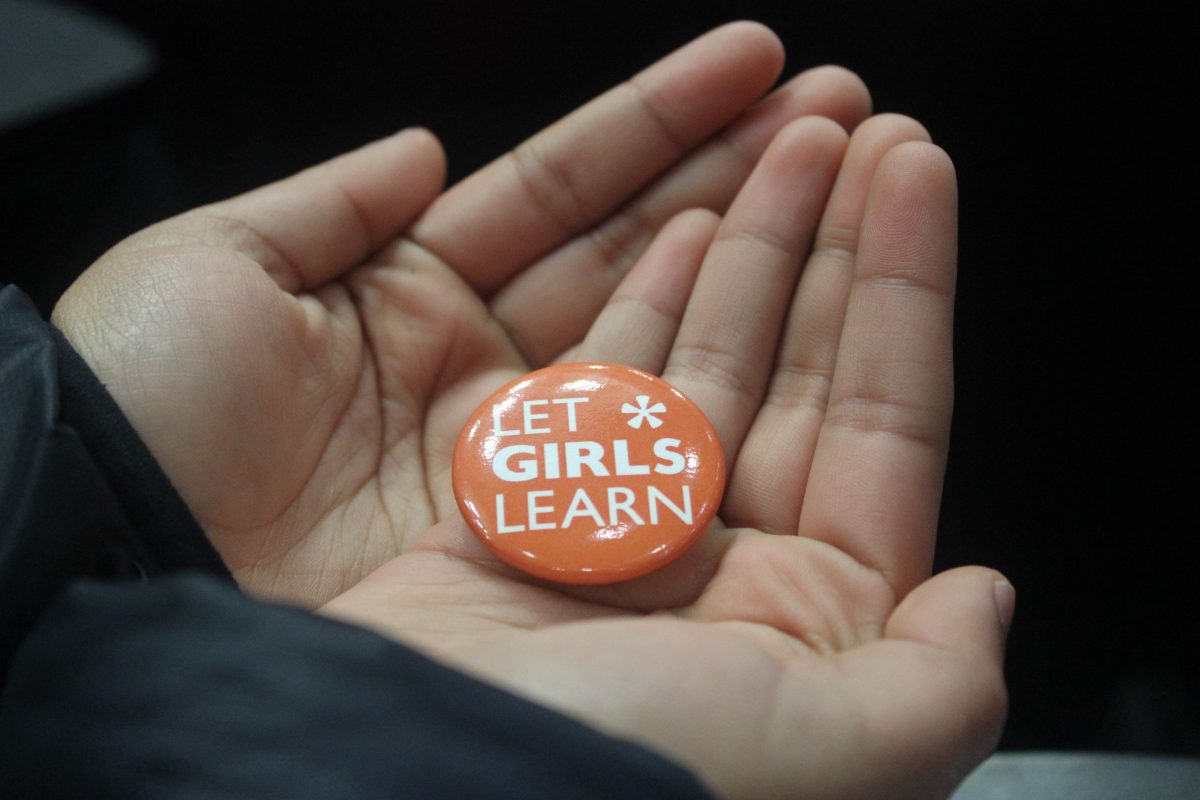Krista Rigalo, the Vice President of the American division of the Peace Corps delivered a speech earlier this year as the Global Issues Network (GIN) conference’s keynote speaker.
She focused on the lack of education for girls in developing countries, discussing her project “Let Girls Learn.” Rigalo has worked with Peace Corps for many years.
Rigalo’s presentation was very interactive. Single sheets of blank printer paper were handed to audience members as they entered the large, modern auditorium at George Washington University. She instructed everyone to rip the paper into eight equal pieces. They were told to write on the first four what their education has taught them, on the rest write what they hope to achieve from education.
The room, mostly full of teenage students from the DMV area, took a while to carry out this task. She then told them to crumple the papers into little balls. Many audience members proceeded to throw the balls at each other, but those who took it seriously discussed their feelings. People described feelings of being hopeless, powerless, even depressed. Rigalo responded to the last comment, saying that it wasn’t her intention. However, she made the point of the importance of education, and how it shouldn’t be taken for granted.
Rigalo then selected a female volunteer from the audience to go up for a role play demonstration of sorts. A Washington International School (WIS) student, Jessica Jackson, was chosen. She played Lola, a girl living in a poor rural community in a developing country. As Rigalo read a new piece of information about Lola’s life, the audience decided whether she should take a step forwards or backwards. Eventually Lola reached her goal of being a doctor, met with a round of applause from the audience.
Rigalo discussed her work in rural areas in both South America and Africa. She helped to improve girls’ education in these areas, to show them that they have potential in life beyond marrying and having children. First Lady Michelle Obama has worked closely with Rigalo’s program, and it has received substantial support.
By Alfie Pannell


































































